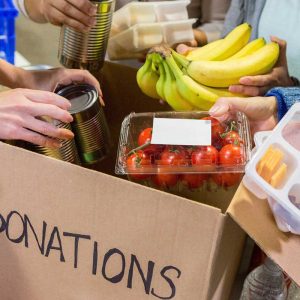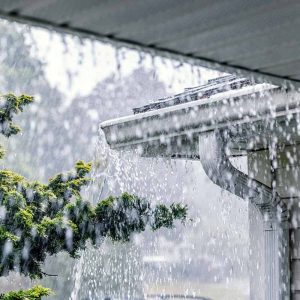Last Updated on June 27, 2025


Welcome to Canada! (Bienvenue au Canada)
As a newcomer, moving to Canada represents a thrilling prospect filled with possibilities, as well as a significant undertaking that requires preparation and adaptation. The collection of guides and resources provided below is designed to assist newcomers in navigating the initial stages of their Canadian adventure:
- Look for a home: Find a good place where you can live.
- Get a job and education: Find work and schools for you or your kids.
- Use medical services: Get the health care you need.
- Connect with your community: Join in with people and activities where you live.
- Handle your money: Use and look after your money in Canada.
You will also find detailed information on securing employment, accessing health care services, and discovering avenues for assistance as you settle into your new life in Canada. These resources are tailored to help you overcome the challenges of relocation and embrace the opportunities that await in your new home.
Before Your Arrival to Canada
Relocating to Canada presents both prospects and challenges. To prepare for your arrival, it’s crucial to gather essential documents, secure accommodation, acquire suitable clothing, improve language skills, and make other necessary arrangements. Pre-arrival settlement services are available to assist newcomers in adjusting to life and work in Canada. These services provide guidance on how to access various programs and offer support in preparing for the move.
Key Documents to Collect:
- Passports or travel documents
- Educational diplomas and certificates
- Language proficiency test results
- Vaccination and medical records
- Dental and eye care records
- Driver’s licenses
- Birth, death, marriage, or divorce certificates
- Employment records
These documents may need to be translated into English or French. Additionally, you should compile a list of personal belongings you plan to bring to Canada and complete the necessary documentation for them. For more detailed information on pre-arrival preparations and document requirements, you can refer to the Canada guide (Crossing the border) available in both English and French.

After Your Arrival to Canada
To ensure a smooth transition, there are several key steps you should take shortly after your arrival. These steps will help you integrate into Canadian society, access essential services, and start your new chapter with confidence.
Essential Tasks for Newcomers to Canada:
In the First Two Weeks:
Settlement Services: Seek help from settlement service providers for programs and mentorship.
Social Insurance Number (SIN): Apply for your SIN, which is required for work and accessing government services like the “My Service Canada Account (MSCA)“.
Health Insurance: Register for government health insurance (ie OHIP); it may take up to 3 months for coverage to start. Consider private insurance in the meantime.
Permanent Resident Card: Provide your Canadian address to IRCC within 180 days to receive your PR card by mail.
Bank Account: Open a bank account; you’ll receive a debit card for transactions. Make sure to check first if your prefer bank are open or not before going there to save time.
Emergency Number: Remember to call 911 in emergencies.
In the First Two Months:
Housing: Find suitable housing, considering location and cost.
School Registration: Enroll your children in school, providing necessary legal documents.
Healthcare Providers: Locate a family doctor and dentist.
Community Engagement: Explore your community, make connections, and consider language training options.
Driving: Learn about driving laws and obtain a driver’s license or International Driving Permit.
Rights and Responsibilities: Familiarize yourself with Canadian laws and civic duties.
Remember to verify information through official resources provided in English and French, and consult settlement service providers for assistance.
Getting a House in Canada
Prior to settling on a location to call home in Canada, it’s crucial to acquaint yourself with the diverse housing options available. Reflect on your specific needs for accommodation and carefully consider the various cities and neighborhoods to find a place that aligns with your lifestyle and preferences. Doing some research will surely help like reading helpful articles about “Best Cities to Live in Canada in 2025” or “The Cheapest Places to Live in Canada” from the trustworthy site. This thoughtful exploration is an important step in making an informed decision that will enhance your experience of living in Canada.
Choosing for a Place to Live:
Types of Housing: Understand the various housing options available, including temporary and special needs housing.
Assess Needs: Consider your financial situation and housing preferences before making a decision.
Location and Cost: Evaluate the importance of proximity to work, schools, and other amenities, as well as affordability.
Renting in Canada:
Tenant and Landlord: Learn about the tenant-landlord relationship, including the significance of the lease agreement.
Rights and Responsibilities: Familiarize yourself with housing laws specific to each province and territory.
Additional Resources:
Canada Mortgage Housing Corporation: Offers comprehensive information on housing for newcomers.
Settlement Agencies: Provide guidance and support to help you find suitable housing.
Remember to utilize local resources and settlement agencies for personalized assistance in your housing search.

Finding Employment in Canada
Looking for a job might be tough and could take a while. There are groups that can assist you. They have lots of programs and services to get newcomers ready for work and help them find a job once they’re in Canada. Find free newcomer services close to you (this information is in both English and French).
Here’s a summary of the key points to prepare for work in Canada:
Settlement Services:
- Settlement service providers offer programs to help newcomers prepare for work and find jobs.
- To locate services in your area, search for free newcomer services.
Regulated Occupations:
- Some Canadian jobs require a license or certificate, which varies by province or territory.
- Start the credential recognition process before arriving in Canada.
Documents:
- Collect all important original documents for you and your family.
- For a list of necessary documents, refer to the “Crossing the border” web page.
Alternative Careers:
- If you can’t find work in your field, consider how your skills could transfer to other careers, or do part time work from home or starting a business.
Social Insurance Number (SIN):
- Apply for a SIN, which is required to work in Canada.
- Only provide your SIN when legally necessary and understand why it’s being requested.
Skills Development:
- Research skills and experience needed for jobs of interest.
- Essential skills include communication, reliability, teamwork, quick learning, and adapting to workplace culture.
- Language proficiency in English or French is crucial.
- Gain experience through temporary or volunteer work.
Networking:
- Build relationships to learn about job opportunities.
- Volunteer in your community or sector to network and make connections.
- Use professional networking sites to create a profile and connect with people in organizations of interest.
- Consider mentorship programs to gain insights into your profession.
For more detailed information, contact community settlement service providers or consult resources like “Finding a Job is a Job” and “Social Insurance Number – Overview.” Remember, networking and language skills are vital for job searching in Canada.
ICYDK
In Canada, it is against the law to treat people differently or not hire them because of their gender, nationality, race, ethnicity, religion, age or sexual orientation.

Getting Health Care in Canada
In Canada, you have access to various health services to take care of your health and get fast assistance if there’s an urgent situation. The government pays for most health care, so if you’re insured by the government, you won’t have to pay for the services that insurance covers.
To stay healthy, it’s a good idea to get vaccinated regularly and keep up with the latest health news and issues.
Here’s a summary of the health care information for newcomers to Canada:
Health Care Services:
- Government-funded health care is available in Canada, and with government health insurance, many services are covered without direct payment.
- Settlement service providers offer programs to assist newcomers, including health care guidance.
- In an emergency, dial 911 or visit the emergency department of a hospital.
- For regular health care, use walk-in clinics or consult a pharmacist.
- Find a family doctor and dentist who can accept new patients to maintain your medical history.
Communication:
- Health care providers may communicate in English or French. If needed, ask for an interpreter.
Mental Health:
- For mental health issues, contact a family doctor, visit a walk-in clinic, or seek short-term counselling services.
- In a mental health emergency, call 911 or the local emergency number.
Health Insurance:
- Apply for government health insurance as soon as possible, which may take up to 3 months to activate.
- Each person will receive a health card to use when accessing medical care.
- Consider private medical insurance while waiting for government health insurance.
- Some services, like dental care, may not be covered and could require out-of-pocket payment.
- Interim Federal Health Program may provide temporary care for eligible refugees, asylum claimants, or protected persons.
Vaccinations and Public Health:
- Consult a doctor for necessary vaccinations in Canada.
- Stay informed about public health emergencies through the Public Health Agency of Canada.
For more detailed information, newcomers are encouraged to consult Public Health Agency of Canada, available in both English and French. Remember to check eligibility for various programs and understand the coverage provided by government health insurance.
Dealing With Money and Finances in Canada
As you start your new life in Canada, you’ll likely face various costs. It’s crucial to know how to handle your regular and surprise bills, achieve what you want, and keep your savings safe.
Here’s a summary of the key points regarding financial management for newcomers in Canada:
Settlement Services: Newcomers can seek assistance from settlement service providers for various programs and services after arriving in Canada.
Currency: Canada uses paper money and coins, including the nickel (5 cents), dime (10 cents), quarter (25 cents), loonie (1 dollar), and toonie (2 dollars).
Banking: It’s advised to open a bank account promptly, with options for savings and chequing accounts. Banks provide debit cards for transactions and ATM withdrawals.
Credit Cards: Credit cards allow borrowing up to a certain limit, with interest charged on the borrowed amount. Timely repayment builds a positive credit history.
Sending Money Abroad: Money can be sent electronically or via money order to one’s home country through secure channels.
Taxes: Residents must file an income tax return annually with the Canada Revenue Agency, which determines eligibility for benefits and credits.
Managing Money: Budgeting is crucial for managing expenses and achieving long-term financial goals. Investment options include RESPs, RRSPs, and TFSAs.
Fraud and Identity Theft: Be vigilant about personal and financial information to avoid fraud and identity theft. Verify the legitimacy of requests for such information.
For more detailed guidance, newcomers are encouraged to contact their banks or local settlement service providers. Additionally, there are resources available online, including videos and web pages, in both English and French. Always ensure to use secure and trustworthy services when handling financial matters.
We were featured in a Redfin article! Check it out here: How to Move to Canada: 29 Expert Tips for a Smooth Transition — a must-read resource packed with expert advice for newcomers. It’s the perfect complement to this guide, offering practical insights to help you settle into Canadian life smoothly.

Preparing for the Primary / Secondary Education in Canada
In Canada, it’s the responsibility of parents and guardians to ensure their kids go to school.
Here’s a summary of the education system in Canada for parents and guardians:
School Types:
- Public Schools: Operated by provinces/territories, free of charge, available in English and French.
- Private Schools: Not government-funded, require tuition fees.
School Year: Runs from late August/early September to June, with breaks and closures on public holidays.
Registration: Documents needed: child’s age proof, guardianship proof, home address, and immunization records.
Support Services: Settlement workers in schools assist new Canadian families.
Home Schooling: Parents can choose to educate their children at home, following guidelines from local education authorities.
Language Programs: English and French language schools are widespread, with French immersion programs available.
Parental Involvement: Opportunities include volunteering, attending parent-teacher meetings, and joining the school council.
Education Levels:
- Elementary/Primary Education: First 8 grades, starting with kindergarten.
- High School/Secondary Education: Grades 9 to 12, except in Quebec (grades 7 to 11).
Classroom Environment: Mixed-gender classes are common, with some private schools offering single-gender education.
Religious Education: Separate Catholic public schools and private religious schools exist in some regions.
Parents and guardians are encouraged to be active in their children’s education and can find more information through local schools or provincial education websites. Remember to use secure and official resources when seeking information.
Taking Post-Secondary Education in Canada
After you finish high school, you can go on to more schooling, which is called post-secondary education. This includes places like universities, colleges, and institutes. If yo prefer best schools out there this article “Best Universities in Canada” worth to read.
Usually, there are two main terms when classes happen each year: from September to December and from January to April. A lot of these schools also let you study less than full-time or take classes online, and they might even have classes you can take during the summer.
Here’s a summary of the key points about post-secondary education in Canada:
- Post-secondary Education: Follows successful completion of high school, with institutions like universities, colleges, and institutes.
- Study Terms: Typically two main terms, September-December and January-April, with part-time and online options, including summer courses.
- Colleges and Institutes: Offer 1-3 year programs granting diplomas and certificates for specific job fields. Quebec provides vocational training via school boards.
- Universities: Provide undergraduate (Bachelor’s) and graduate (Master’s, Ph.D.) programs in arts, sciences, and professional fields, usually lasting 4+ years.
- Program Selection: Use resources like EduCanada, CICIC, Universities Canada, CICan, and the National Association of Career Colleges to find programs.
- Credential Recognition: Have foreign educational credentials recognized; provide translated documents if necessary.
- Admissions: Requires a high school diploma or mature student status (19+, Canadian citizen or permanent resident). Language proficiency tests may be needed.
- Financial Assistance: Includes tuition and fees, with government loans, grants, scholarships, and bursaries available. Private loans and RESPs are also options.
Good luck with your educational pursuits in Canada!
Build Your Community
Getting to know people and feeling like you’re part of a group will make Canada feel more like home.
Here’s a brief summary of how to find community and connection in Canada:
- Building Community: Feeling at home in Canada is easier when you connect with others through local programs, sports, and volunteering.
- Settlement Services: These providers help newcomers integrate, offering mentorship and social activities to foster a sense of belonging.
- Local Programs: Cities and towns run various programs for all ages, including sports, arts, and educational classes, some of which may be free.
- Community Centres and Libraries: These are hubs for socializing and learning, offering free access to books, media, and classes with just a library card.
- Volunteering: A common practice in Canada, volunteering can help you meet people, gain Canadian work experience, and improve language skills.
- Engagement Opportunities: Participate in local events, join clubs, introduce yourself to neighbors, get involved in your child’s school, and connect with others at places of worship.
- Resources: Use services like hotline 211, city websites, Volunteer Canada, and local community centres to discover more ways to engage with your community.
These steps can help you establish a network and feel more integrated into Canadian life.
Want to get to know Canada better? Don’t miss our article: What is Canada Known For? Discover the Top 20 Things Canada is Famous For. It’s a great way for newcomers to explore the culture, values, and iconic things that make Canada truly special.
More FAQs About Newcomers to Canada
Newcomers to Canada often have many questions about settling in. This FAQ provides clear and direct answers to the most common concerns, from finding housing and jobs to accessing healthcare and education.
In Conclusion
To wrap it up, starting a new life in Canada comes with its own set of perks and hurdles. It means getting all your papers in order and figuring out Canada’s tax rules and the help you can get from the government. Canada is a place that really appreciates different cultures and backgrounds and is ready to help with lots of support.
Whether you’re looking to improve your skills for a better job or just want to feel at home here, Canada’s got your back. This guide is like a one-stop-shop for all the info and tips you need to make moving to Canada a breeze. As you begin this adventure, you’re invited to really get into the Canadian way of life, connect with people around you, and add your own unique touch to this diverse country.






